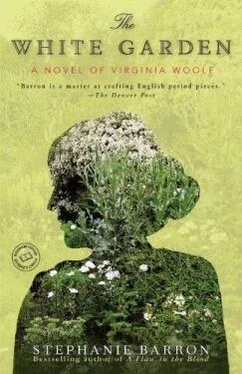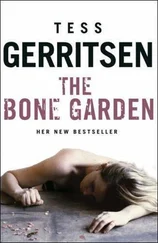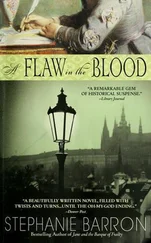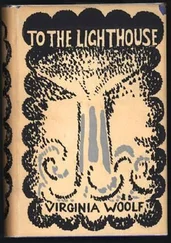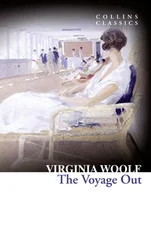For Leslie, with love.
IT WAS CHILLIER THAN SHE EXPECTED THAT MORNING, and a stiff wind shuddered through the apple blossoms — penetrating even to the desk in the Lodge at Rodmell, where she preferred to write. The wind formed a background to her stuttering thoughts, not unlike the sound of airplane engines cutting out overhead — there had been so many engines in recent months that she’d stood beneath them as they passed, her bony fists clamped to her jutting hips, staring upwards from the back garden. So many planes. So many bombs, that one had actually fallen near the house when she wasn’t looking. The river dykes were smashed and the water crept over the flat Sussex meadows as steadily as infantry.
She had hoarded poison against the coming Germans and made death pacts — she would not be taken alive. But by winter the planes had dwindled, predatory birds bound for harsher climes. Leonard hid the poison very secretly while she was in London one day.
And so she was forced to make other plans.
She wrapped the wings of the ancient cardigan closer about her wasted frame and began to write.
I feel certain that I am going mad again; I feel we can’t go through another of those terrible times.…
He never used the word mad , Leonard. He was infinitely careful in his choice of words, as befit a good editor. Your health , he would say; your nerves. You must think about a rest. Now that the book is finished .
The book was called Between the Acts and she thought it was probably her worst, but then she always thought that when she had finished something — drained of the dream phrases that had gripped her for months, she was light-headed and exhausted and immeasurably depressed, as women are who have given birth. In the weeks after writing The End she would refuse to eat. Loiter in doorways. Crave kind words, like a whipped dog.
I begin to hear voices. I can’t concentrate .
Leonard was at his most brisk during such periods. He would leave his work in the garden or the typeface he laboriously set on the hand printing press and shepherd her towards a chair, offer the bulk of her knitting, employ the hands that no longer held a pen. He would urge endless glasses of milk down her throat and forbid visitors. Keep her from travelling to London — although it was the bombs that had taken London from her now, the house in Tavistock Square cratered to its foundations. Leonard wanted the best for her; Leonard manufactured peace.
You have given me the greatest possible happiness.…I don’t think two people could have been happier than we have been.…
Squandering their rationed petrol, he had driven her across the countryside to Brighton yesterday, so that Octavia might look at her.
The horror of unbuttoning her blouse before the woman doctor; the ugliness of her rib cage; the sag of nearly sixty years. She had answered Octavia’s piercing questions in monosyllables. Yes. No. I’m not sure . And then she choked out what was most important: Don’t force me to take a rest cure .
Now she signed her farewell and put down her pen. She did not look back as she left the Lodge in the garden.
LATER, IN HER FUR COAT AND GALOSHES, HER WALKING stick in one hand, she traversed the drowned meadows to the river.
A bird was perched on a fence-post, not ten feet away, trilling despite the bombs: Life! Life! Life!
Even as a child, she had dreamed ecstatically of drowning. Water had an inexorable pull: at the sight of it, she was dizzy with longing and vertigo. To stand on the bank of the River Ouse was to grip the edge of a volcano: she could hardly keep from hurling herself in. The current was nothing, close to the edge; a few days before, when she had ventured out, the ripples quickened at her knees, then sucked at her thighs, a lover dragging her to a sticky bed. Then she’d surrendered to it, sinking down until an unexpected claustrophobia overwhelmed her — the water slamming on her head like a cupboard door. She fought her way out, arms flailing and feet stumbling, her skirts dragging her back.
She told Leonard she’d slipped into a dyke. A bit of weed twined around one leg.
If she were to try again, she thought, it would be important to find some stones.
She picked up a few beauties as she trolled along the riverbank. A chunk of granite; a sharp slate knife. The bird sang past her as the water eddied in the stiff breeze.
Life! Life! Life!
In Latin, the word would be vita .
A tired swimmer in the waves of time
I throw my hands up: let the surface close:
Sink down through centuries to another clime,
And buried find the castle and the rose.
Buried in time and sleep,
So drowsy, overgrown,
That here the moss is green upon the stone,
And lichen stains the keep.
I’ve sunk into an image, water-drowned,
Where stirs no wind and penetrates no sound,
Illusive, fragile to a touch, remote,
Foundered within the well of years as deep
As in the waters of a stagnant moat.
Yet in and out of these decaying halls
I move, and not a ripple, not a quiver,
Shakes the reflection though the waters shiver —

— VITA SACKVILLE-WEST, 1930
JO BELLAMY EASED HER RENTAL CAR CAUTIOUSLY into the Slip Road roundabout, every fiber of her body braced for the shuddering crash that must surely come, and when it didn’t — when the circular bit of carriageway remained miraculously free of maddened English drivers on this late October morning — she darted a glance in the wrong direction, cursed softly, then searched over her left shoulder for the first available exit from this particular rung of hell. She was looking for something called the A262, which ought to lead straight to the castle, but after an hour and a half of descending from London’s Victoria Embankment through the Blackwall Tunnel, not to mention Margate and Maidstone, her patience was frayed and her calf muscles cramped. She was a brown-haired, crinkle-eyed American woman, thirty-four years of age, and this was her first visit to England — which sufficed to say that she had never driven on the left side of the road before. She had particularly never driven a stick-shift transmission on the left, and both her feet and her hands were disobeying her rational mind’s orders. She had stalled twice, clipped the left side of the car with an errant curb (or kerb, as they insisted on spelling it here), and was desperate for a stiff drink, although it was only eleven o’clock in the morning. If she did not find the castle soon, she intended to drive the darling little Mini straight into one of the massive oaks that lined the carriageway, and walk to Sissinghurst.
And then, quite suddenly, the tower rose up from the sheep pastures and tilled fields and she felt her pent-up breath exhale slowly from her lungs.
For years she had read about Sissinghurst, in textbooks, magazines, and glossy coffee-table volumes her grandmother kept in her small house back in the Delaware Valley. She’d known what to expect: Elizabethan tower of rosy brick, rising some five stories with a weather vane on top, lapped by the burnished farmland and woods named the Weald of Kent, or what remained of it. The tower was almost derelict when the Nicolson family bought it in 1930, and they had set about clearing the weeds and neglected cottages at the tower’s foot until a courtyard and a clutch of buildings remained. These they knit into a minor paradise with a series of gardens, as though tower, cottages, sweep of lawn, and surviving moat were a single house, half of it exposed to sunlight and rain. The Nicolsons took their meals in one room (outdoors) and made their beds in others; but the tower had been the sole province of Mrs. Nicolson: Vita Sackville-West, the writer.
Читать дальше
